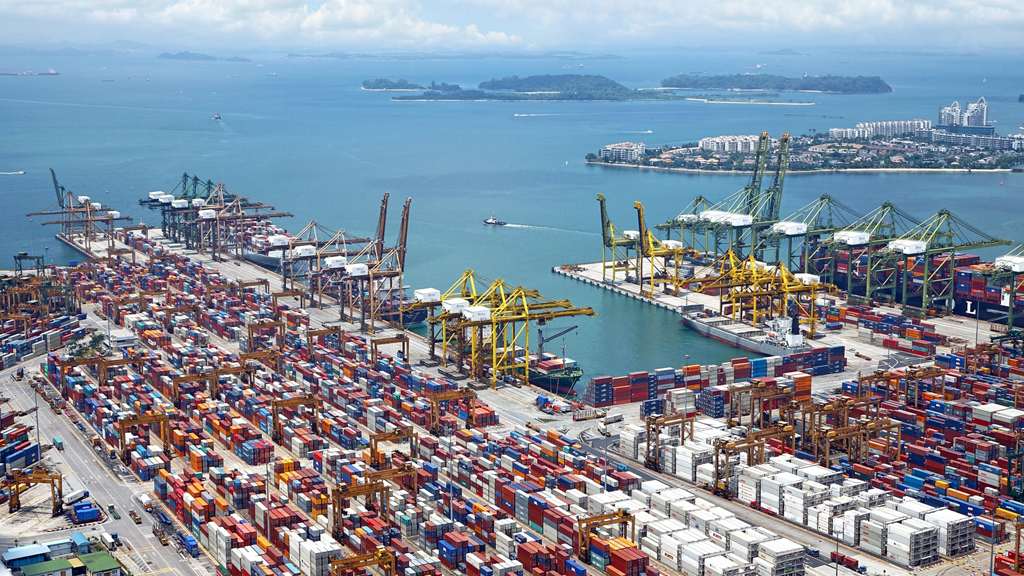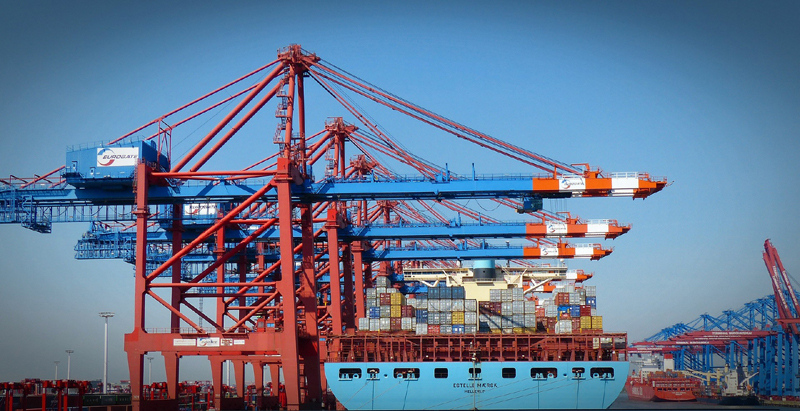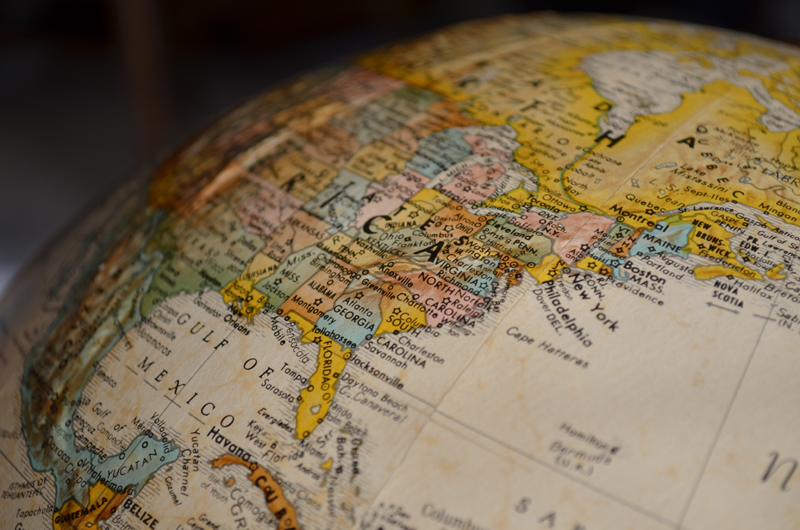IN THE KNOW

WE LIVE IN INTERESTING TIMES - THE LATEST INSIGHTS INTO MARINE INSURANCE

Marine Insurance covers cargo losses and any damage caused to ships, terminals, and the methods by which goods are transferred between different points of origin. It's a complex sector but it's one we swim in confidently, and marine products are some of our top selling insurances. As experts in the field, we like to keep our finger on the pulse.
Here's what's happening in the marine insurance sector right now.

As a marine business it's your responsibility to fully understand the cyber risks you face, working closely with technology and cyber insurance specialists to reduce them.
TOUGH CHALLENGES AHEAD FOR OCEAN MARINE INSURANCE
According to the Insurance Journal September 2019 issue, there are tough times ahead for the global marine insurance sector, the world's oldest and original line of insurance and a speciality field.
On a global basis, many types of marine insurance business haven't been particularly profitable for a while, including cover for larger cargoes, hull and yacht. It's partly down to excess capacity plus lower than average barriers to entry and exit.
Premiums haven't been high enough to cover losses and expenses, and capital providers haven't seen the returns they expected. At the same time, marine products have had to evolve fast to cover bigger risks than ever, including truly huge ships. The MSC Gulsun, for example, is the world’s biggest container ship. It carries cargoes valued at well over a billion US dollars. And that's a very significant risk.
Now we've started to see companies leaving the marine market. Those who remain are busy reviewing the accuracy of their premiums, the expenses, terms and conditions, deductibles, capacity and limits. Underwriters are having to be a lot more focused on exposure, and brokers and insured companies are being asked for more supporting details, evidence, information and facts than ever.
Natural catastrophes are not helping matters, especially yacht and cargo lines. January this year saw one of the biggest, newest container ships, the MSC Zoe, lose 345 containers overboard in heavy weather. Several significant cargo storage losses took place in 2017-18 and some massive losses were encountered thanks to fires, some of which led to loss of life, injury and environmental damage. Most of the casualties were down to shipments of hazardous materials and dangerous goods. The situation has become so difficult that some shipping companies are considering 'significant fines' for the misdeclaration of dangerous goods in future.
Against this challenging backdrop, the industry predicts marine insurance will continue to grow, along with a parallel growing need for re-insurers willing to provide the right products and solutions. It's down to insurers to get the basics right and enable future opportunities, and that means the sector will need even more highly qualified marine insurance professionals to address future needs.
Enhanced technology means we're seeing better ship design, better data collection, and much more precise computer-assisted modelling designed to estimate potential losses from large-scale destructive events like natural disasters.
SOAN IS SLAMMED FOR UNREALISTIC
NEW MARINE INSURER PLANS
The Ship Owners Association of Nigeria, SOAN, wants to set up a specialist insurer in Nigeria to cover its own maritime risks, but the international insurance industry has criticised the idea as unrealistic.
SOAN wants to create a maritime insurance organisation very like the Protection & Indemnity Club of London, designed to reduce the billions of dollars spent by the nation every year on 'foreign' insurers. But the problem is, marine insurance is an international business and the risks are spread both locally and internationally. At the same time most of Nigeria's ships are so old they're more or less uninsurable, and many are not properly registered either.
SOAN is angry with local insurance firms that have refused to pay accident claims. The Chairman says they have already laid out plans to create a new maritime insurance company but experts say that even if SOAN succeeds it won't have much of an impact on the industry's current Gross Written Premium. Setting up an insurance company will require at least N10 billion, a vast sum to generate. The new company would have to pay rent, employ staff, shell out money for essential operational expenses, fund reinsurance and make sure they handle claims effectively to reduce the risk of going broke. Against the current troubled landscape, the chance of survival for a specialist insurance company for marine risks is slim. And if such a company focused elusively on risks from Nigeria, they wouldn't have a change since insurance survives on the law of large numbers. A business with a one-nation focus would be completely unable to spread the risks properly.
ENHANCED MARINE TECH MEANS
NEW CYBER-THREATS
Enhanced technology means we're seeing better ship design, better data collection, and much more precise computer-assisted modelling designed to estimate potential losses from large-scale destructive events like natural disasters. These technological advances are vital to a healthy future marine sector, but they also bring new risks with them, including cyber threats.
Like every IT system, ship systems are vulnerable to malware and ransomware, and the cyber-related losses have started to stack up. Every ship operator needs a plan to deal with cyber risks. In fact, the dangers are so real that the International Maritime Organization (IMO) is making cyber risk management on board vessels mandatory by the year 2021. A recent report by KPMG revealed how not complying could lead to shipping being detained, and that leads to serious financial losses.


HERE ARE THE MOST COMMON CYBER-THREATS FACED BY SHIPPING COMPANIES.
How can shipowners protect their essential communications, engineering, safety, environmental control, and other systems from cyber attack? Like every other business, employees – the users of IT systems - tend to present the biggest cybersecurity risk of all. When your employees are trained regularly and well and can recognise the latest cyber-threats, as well as know how to avoid them, it makes a huge difference.
- Hacking and manipulating data – particularly voyage data recorders and cargo management systems
- Ransomware — where criminals introduce a virus into a shipboard network via email or another means, then lock users out until they pay a ransom
- GPS spoofing – where a criminal sends a radio signal strong enough to interfere with or replace a vessel's own GNSS signal, intending to cause an accident. This could be an even bigger risk in future when autonomous ships become the norm
- Data theft, where commercially sensitive information is stolen
As a marine business, it's your responsibility to fully understand the cyber risks you face, working closely with technology and cyber insurance specialists to reduce them. In a world where cyber threats are perhaps the most significant risks we face, it's vital to have a grip on the risks and make sure you also understand the potential of future risks.
The Jones Walker LLP 2018 Maritime Cybersecurity Survey questioned 126 senior staff in US maritime companies of every size and found almost 80% of large maritime industry companies with over 400 employees and 38% of all industry respondents said cyber attacks had affected their businesses in the past year. 10% of those attacks succeeded.
At the same time, 64% of people admitted that their own companies were not prepared. And there's no real reason to believe that our own marine sector, the Asian marine industry, is any better prepared.
How about your marine business? Are you prepared for a cyber-attack, and do you have a plan to follow if it happens? If so we'd love to know about it.
QUALITY MARINE INSURANCES AT FAIR PRICES
We have chosen our partner insurance carriers carefully, bearing quality in mind. Come to us for marine cover and we'll ensure you get the exact right product, at the right price, to cover the risks you face as thoroughly as possible.
SOURCES:
https://www.insurancejournal.com/news/national/2019/09/26/541300.htm
https://www.hellenicshippingnews.com/nigeria-insurers-battle-ship-owners-over-maritime-insurance/
Posted on 31 October, 2019 Reading times 8:50 mins